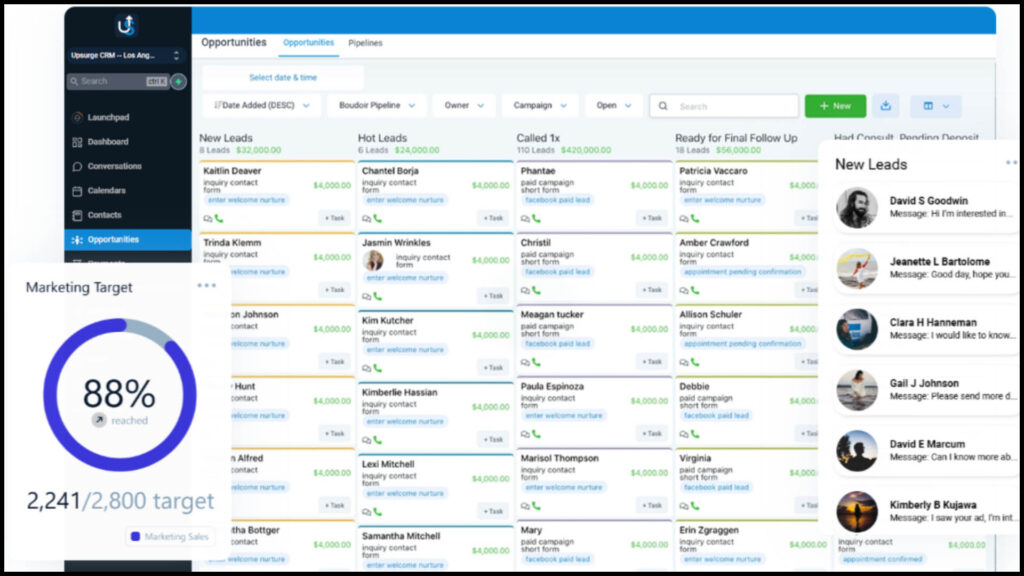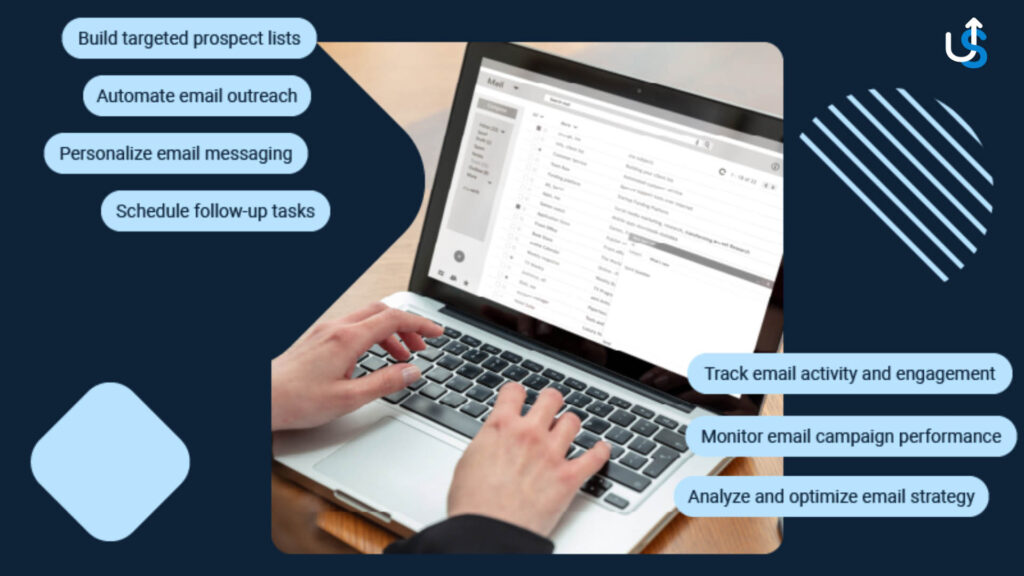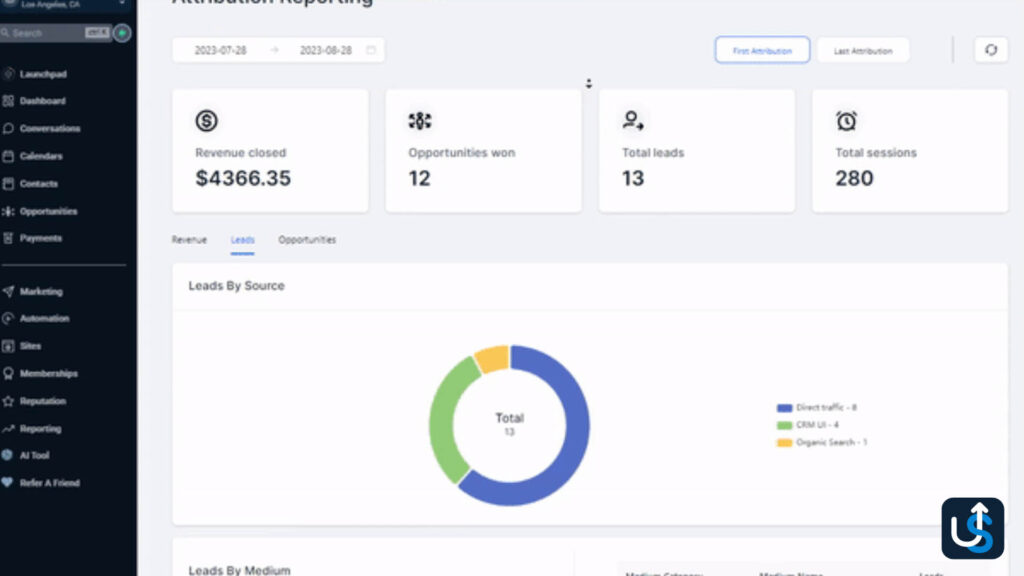
With increasing demands and competition, businesses need streamlined processes to track, nurture, and convert leads effectively. Customer Relationship Management (CRM) systems have emerged as indispensable tools for achieving this goal, helping organizations optimize workflows and enhance customer engagement.
This blog explores how CRM systems simplify lead and customer management, delving into their features, benefits, and impact on sales performance and customer satisfaction. By understanding the role of CRM in lead tracking, nurturing, and team collaboration, businesses can unlock their full potential and achieve sustainable growth.
Lead management is the systematic approach to capturing, tracking, and nurturing leads until they become qualified leads and eventually convert into customers. It involves several stages, including lead generation, lead qualification, and lead nurturing.
By employing a comprehensive lead management process, businesses can ensure that every lead is given the attention it deserves, enhancing the chances of conversion. A robust CRM system is designed specifically to support this process by organizing lead information and providing tools for effective communication and engagement.
One of the core functionalities of CRM lead management software is its ability to track leads effectively. CRM solutions allow businesses to capture leads from various sources, such as websites, social media, and marketing campaigns, and consolidate them into a single database.
This centralized lead tracking ensures that sales reps have access to accurate and up-to-date lead data, making it easier to manage leads throughout the sales funnel. By utilizing lead tracking features, sales teams can monitor interactions with every lead, identify engagement patterns, and tailor their follow-up strategies accordingly.

The benefits of using a CRM for lead management are extensive, providing businesses with tools to streamline operations, improve communication, and maximize sales potential. Here’s how a CRM transforms lead management:
Enhanced Team Collaboration: CRM bridges the gap between sales and marketing teams, ensuring alignment in lead generation and follow-up strategies. This creates a unified approach to converting leads.
Improved Lead Scoring: Advanced CRM systems analyze lead data, assigning scores based on factors like engagement, demographics, and buying intent. This helps businesses prioritize high-value leads with a higher likelihood of conversion.
Focused Efforts on High-Potential Leads: By identifying and segmenting promising leads, CRM tools allow businesses to allocate resources effectively, increasing overall sales performance and ROI.
Targeted Lead Nurturing: CRM software automates personalized email campaigns and follow-ups, ensuring that each lead receives tailored content and support throughout their journey.
Comprehensive Lead Tracking: With a CRM, businesses can monitor every interaction with a lead, from the initial contact to the final conversion. This provides valuable insights into what strategies are working and where improvements are needed.
Faster Response Times: Automation features in CRM tools enable businesses to respond to lead inquiries instantly, creating a positive impression and increasing the likelihood of conversion.
When evaluating lead management tools, the best solutions include:
These features ensure streamlined workflows and effective lead management.

Among the numerous CRM solutions available, Upsurge CRM stands out for its robust lead management capabilities tailored to meet the unique needs of businesses. Unlike other generic CRM platforms, Upsurge CRM offers a user-friendly interface, highly customizable features, and a focus on intuitive functionality, making it an excellent choice for businesses of all sizes.
When evaluating Upsurge CRM against other systems, businesses can rely on its powerful tools, such as pipeline management, contact organization, and advanced lead tracking. These features are designed to align seamlessly with the specific needs of sales teams, ensuring optimal lead management and driving measurable results.
Explore more about Upsurge CRM’s unique features and benefits at Upsurge CRM.
Choosing the right lead management tool for your business involves careful consideration of several factors.
CRM software plays a pivotal role in lead generation by facilitating the capture of new leads efficiently. With integrated lead capture forms on websites and social media channels, businesses can gather lead information effortlessly.
These forms can be customized to collect specific data, making it easier for sales teams to segment and target leads based on their interests and behaviors. CRM systems can automate the initial follow-up with new leads, ensuring timely communication and engagement that sets the stage for effective lead nurturing.

Email marketing remains one of the most effective ways to nurture leads, and CRM systems provide the necessary tools to execute targeted campaigns. By leveraging CRM email marketing features, businesses can create personalized content that resonates with the interests of their leads.
Automated workflows allow for timely follow-ups based on lead activity, ensuring that no opportunity is missed. This nurturing process helps to build trust and credibility, increasing the likelihood that leads will convert into paying customers.
For effective lead generation, it is essential to integrate sales and marketing efforts seamlessly. CRM software helps bridge the gap between these two departments by providing shared access to lead data and insights. By collaborating on marketing campaigns, sales teams can provide valuable feedback on lead quality and conversion rates. This collaboration fosters a more cohesive approach to lead generation, ultimately resulting in a more extensive and qualified lead pool that can be efficiently managed through the CRM system.

Managing leads throughout the sales pipeline requires diligent tracking at every stage of the sales funnel. CRM systems provide tools for monitoring lead progression, from initial contact to final conversion. By tracking leads at each stage, businesses can identify bottlenecks in the sales process and implement strategies to address them. This proactive approach ensures that leads do not fall through the cracks and that sales teams can respond promptly to any issues that may arise.

CRM software is instrumental in streamlining the sales process by automating routine tasks and providing sales reps with the resources they need to succeed. Features such as automated reminders for follow-ups, centralized lead data, and integrated communication tools enable sales teams to focus on building relationships rather than getting bogged down in administrative tasks. By streamlining these processes, CRM systems enhance overall sales efficiency, allowing teams to manage leads more effectively and drive higher conversion rates.
To optimize lead management, it is essential to prepare the sales team with effective strategies that align with the capabilities of the CRM system. This includes conducting regular training sessions on lead management features, encouraging collaboration with marketing teams, and setting clear expectations for lead follow-up. By equipping the sales team with the right tools and strategies, businesses can foster a culture of accountability and responsiveness that enhances lead conversion and customer satisfaction.
Efficient lead and customer management is essential for driving sales and customer satisfaction. A CRM system streamlines this process by centralizing lead data, automating follow-ups, and enhancing collaboration between sales and marketing teams.
Key features like lead scoring, detailed analytics, and integration capabilities ensure businesses can capture, track, and nurture leads effectively. By leveraging these tools, organizations can optimize their operations and create a seamless customer experience.
Whether you’re looking to streamline your lead management or elevate customer engagement, Upsurge CRM provides the tools you need to succeed. Ready to transform your business? Learn more about Upsurge CRM today!
